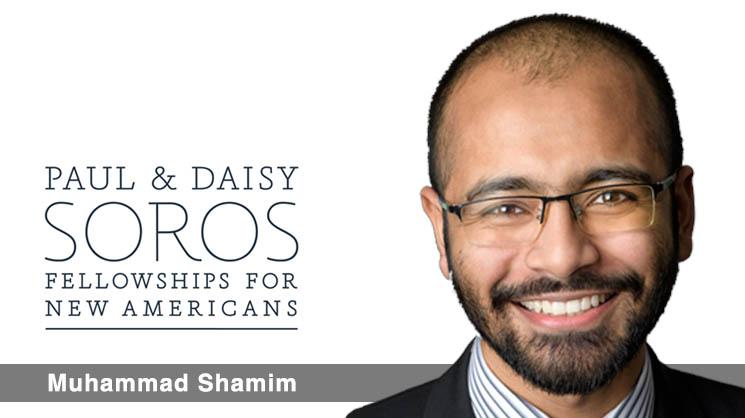Rice University bioengineering doctoral student Muhammad Saad Shamim is among 30 scholars awarded a 2018 Paul & Daisy Soros Fellowship for New Americans.
Shamim and two Rice alumni, Benjamin Chou ’13 and Norma Torres Mendoza ’13, received the merit-based fellowship.
“This award is an amazing recognition of the journey that a lot of immigrants take in the United States,” Shamim said. “It acknowledges the challenges our families have overcome and our contributions to this amazing country that we call home.”
Selected from a pool of more than 1,700 applicants for their potential to make significant contributions to U.S. society, culture, or their academic fields, fellows are chosen for their focus on creativity, originality, and initiative in light of the challenges and opportunities that have been part of their immigration story. The fellowships were established by Paul and Daisy Soros, Hungarian immigrants and American philanthropists.
Shamim, who received a bachelor’s in computational and applied mathematics, computer science, and cognitive sciences and a minor in biochemistry and cell biology from Rice in 2014, will use the Soros Fellowship to support work toward an M.D./Ph.D. in bioengineering at Rice and Baylor College of Medicine, where he is completing his second year in medical school. He will be transitioning to Rice’s bioengineering graduate program this fall.
At Baylor, Shamim conducted research in Assistant Professor Erez Lieberman Aiden’s laboratory and contributed to several publications in the field of 3-D genomics. The National Institutes of Health ENCODE Project officially adopted the high-performance computing pipeline he co-developed for processing 3-D genomics datasets. During the course of his Ph.D. studies, he will work in Dr. Aviva Aiden’s laboratory, which is also at the Baylor College of Medicine’s Department of Molecular and Human Genetics. He hopes to bring forth new understanding of the structure within our genomes, with an eye towards clinical applications and therapeutics.
Shamim is the eldest of five siblings. He was born in Pakistan to physician parents and immigrated to the U.S. at the age of two for his father’s medical residency. “My mother sacrificed her career to raise my siblings and me,” Shamim said.
His parents’ background in medicine inspired him to pursue the field, and his multidisciplinary interests developed further at The Science Academy of South Texas, an engineering magnet high school in the Rio Grande Valley.
At Rice, Shamim’s passion for research grew through several projects, such as simulating radiative transfer at the Department of Energy’s Oak Ridge National Laboratory and improving echocardiogram analysis software for researchers at Texas Children’s Hospital. He was also an engineering computation lab assistant and a member of Rice Emergency Medical Services (REMS).
“It was an honor to comfort and treat patients on what was often the worst day of their lives,” he said. “REMS was an incredible part of my undergrad experience — dropping everything at a moment’s notice to attend to an emergency whether it was in the middle of rush hour or at 3 a.m.”

